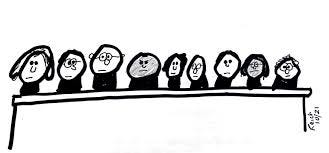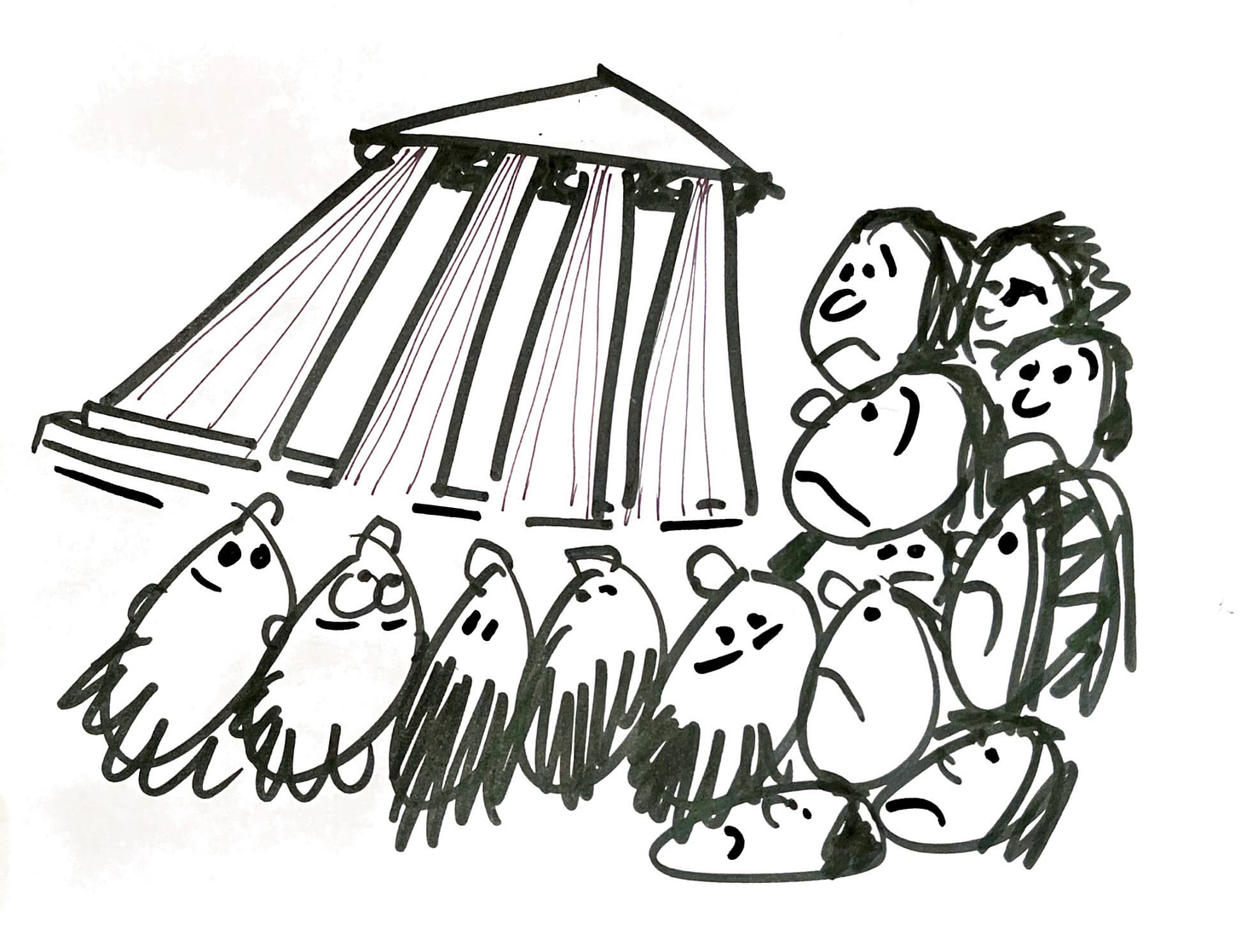One way or the other, the Supreme Court will determine Trump’s (and America’s) fate
The least democratic branch of government will call many of the shots in the 2024 election
,
Friends,
Nine unelected justices — three of whom were nominated by Donald Trump — are on the verge of deciding whether Trump should be disqualified from state ballots for engaging in an insurrection on January 6, 2021, in violation of Article 3 of the 14th Amendment to the United States Constitution.
They have already agreed to review the scope of an obstruction law that’s central to the federal indictment accusing him of plotting to overturn the 2020 election.
They may soon rule on his motion to dismiss those charges under broad claims of executive immunity.
They are being called upon by Trump to end a gag order imposed on him by a trial court, restricting his attacks on Jack Smith, the special counsel in charge of the case.
The high court may also rule on a series of civil lawsuits seeking to hold Trump accountable for the violence at the Capitol on January 6.
Any one of these decisions could affect the outcome of the 2024 election.
Even a decision to move slowly could determine whether a trial court’s ruling on charges that Trump tried to overturn the 2020 election is made before Election Day. If he’s reelected president and the trial court hasn’t yet ruled, Trump could order the charges be dropped.
But how can the Supreme Court expect a deeply divided American public — more divided than when it decided the Bush v. Gore case, which effectively decided the 2000 election in favor of George W. Bush — to accept its decision on any one of these cases?
By many yardsticks, the Supreme Court is already suffering a crisis of public confidence.
Its controversial (and questionable) rulings on abortion and affirmative action, among others, have pushed the court into highly politically charged territory. Revelations about the personal connections of some justices to wealthy financial backers have further undermined public trust.
I have represented the United States before the Supreme Court.
I am in awe of the Supreme Court’s potential moral authority.
I was a kid when it decided in Brown v. Board of Education that segregated schools are unconstitutional. I was in law school (with Clarence Thomas, Bill Clinton, and Hillary Rodham) when it decided in Roe v. Wade that states cannot ban abortions. I was in public office when it decided in Obergefell v. Hodges that the right to marry is guaranteed same-sex couples.
In these cases, the court used its moral authority to balance the scales of justice in favor of Black people, women, and LGBTQ+ people — for whom the Constitution’s guarantee of equal protection was found to be decisive. The Supreme Court’s moral authority was enough to persuade America that justice was done.
The Supreme Court was regarded by the Founders as the “least dangerous branch” because it has no power over government spending or over the enforcement of its decisions.
Yet it is also the least accountable to the public. And it has no moral authority to make essentially political decisions.
I find it frighteningly ironic that at the very time in the nation’s history when democracy hangs in the balance — when Trump has already refused to accept the outcome of one election and is openly proclaiming that, if elected, he will overturn several core democratic norms — the least democratic branch of government will be taking such a significant role in deciding whether he has a shot at doing so.
What do you think?





I don’t trust the Supreme Court at this point. A 5 - 4 majority whether conservative or liberal was acceptable even if I disagreed. The 6 - 3 majority that Trump and McConnell forced through can and has ridden roughshod over the rest of us. They, supposedly icons of jurisprudence, lied during their nominations. They can’t be trusted.
i hate to say this, Professor Reich, but most of us out here are already convinced that colorado's ruling will be overturned, and that, i am convinced, will be the final straw that breaks SCOTUS's back. no one will take anything that scotus says seriously anymore since it's clear who their masters are (the "corporations are people" decision was the first alarm bell in what is a five-alarm political fire.)
NOTE: edited to remove misplaced close-parenthesis. sorry.